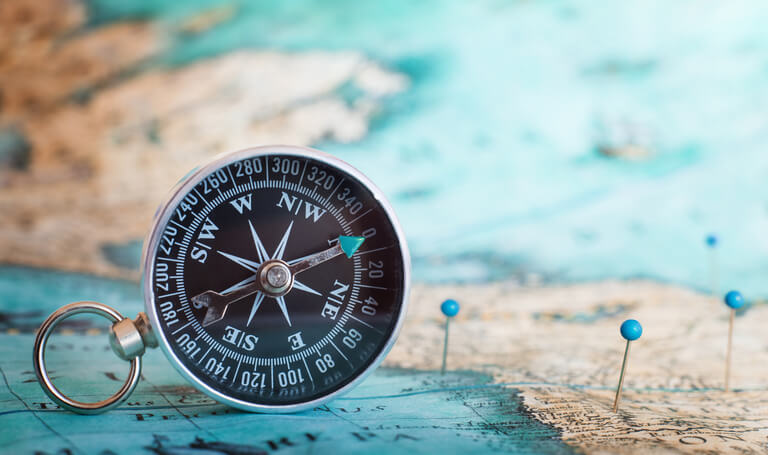Calling Time on Your Expat Adventure

Each year, thousands of UK expats choose to end their expat adventure and return to our evergreen shores, joining the ‘repat’ club. Their reasons for coming home are diverse as colours of the rainbow – from chronic homesickness, to the end of an overseas work posting.
The internet is awash with tips, tricks, and advice on how to become an expat. However, when it comes to repatriating to your native land, it’s easy to feel like you’ve hit an information blackhole. With 101 things on your to-do list, an emotional hurdle to jump, and ‘reverse-culture shock’ to fear – moving back home can feel like an uphill struggle with no end in sight.
For the inside track on exactly what to expect (and more importantly how to handle it), we sat down with ‘Expat Expert’ and recent repatriate Carole Hallett Mobbs – founder of Expatability.net – to discuss her experience of making the big move home.
Thanks for joining us today Carole. Can you start by telling us, how did your expat journey begin?
The timing was right for us, so my husband applied for an overseas posting. We struck gold with our first posting and left for Tokyo, Japan in 2006 where we stayed there for nearly five years. It was an incredible experience in the most extraordinary city in the world.
Following that we moved on to Berlin, Germany for two years, before my husband was offered a new job opportunity in South Africa. It was such a wonderful opportunity and we considered it for all of 20 seconds before accepting. Three months later we had set up our new base in Pretoria, South Africa where I’ve lived until the beginning of 2018.
South Africa looks to be a stunning place to live, but it does have an unwelcome reputation regarding personal safety. What has been your experience and what advice would you give to prospective UK expats who are considering relocating to South Africa?
South Africa is a remarkable country with mind-blowing outdoor adventures to be had. If you’re an outdoorsy person like me, there is no better country to live in. The nature reserves are second to none, and it doesn’t take long to get from the hustle and bustle of the city to the peace and serenity of the country.
In all my years of travelling, I have found South Africans to be the friendliest people ever. However, its right to have safety concerns, and so you need to fully and carefully consider what you’re getting yourself into and be aware of the risks. You do need to live an alert and vigilant daily life, which at times can be exhausting, but I’ve known many expats in South Africa who were so anxious about what might happen that they never left their homes. This is no way to live – and most left after a short time, so be honest with your feelings and expectations and do thorough research.
If you don’t drive, forget it. You need to have a good quality, reliable vehicle to simply get to the supermarket in South Africa. Walking isn’t recommended and the roads a couple of miles from the cities are in poor condition. With no safe public transport, teenage children will be reliant on the taxi of mum and dad or Uber.
Why did you decide to move back to the UK?
Ah, we didn’t decide; my husband’s posting was coming to an end and we had to return to the UK. With no option for another overseas posting, the decision was taken out of our hands. If we were given the opportunity for another overseas posting the answer would have been a resounding “yes!”.
How did your family and friends in both countries react to your decision to leave South Africa and come back home to the UK? Any advice for fellow repatriates on saying goodbye?
Leaving South Africa was always on the cards, so we didn’t experience the emotional upheaval that others may do. Each posting was for a finite duration, so we knew exactly how long they would last.
The curious thing about knowing you will be leaving, is the peculiar feeling of limbo you experience. You find yourself wanting to do everything and fully immerse yourself in the culture, yet at the same time don’t want to leave too much of your heart and soul in a country. It’s easy to psychologically withdraw so it’s important to guard against that.
Saying goodbye is always hard, but my advice is to stay in the present as much as possible. Try to look forward and resist looking back too much. Complicated? Yes, but that’s expat life!
Can you explain for us, what unique challenges does repatriation present, that expatriation does not?
The challenge really boils down to your expectation and assumption that everything will automatically fall into place when you return. Why shouldn’t it, it’s your home country?
The reality is that does not happen! Yes, it’s all familiar – no language issues, for example. Yet for me, even after just 12 years, the UK has changed a lot. Even the food seems different.
The challenges of returning home are just the same as those you experienced moving abroad in the first place. Accommodation needs to be found and prepared, jobs secured, schools applied for and packing and unpacking organised. Social circles, workplaces, neighbourhoods and habits are not as easy to slip back into as most people expect. “Home” can sometimes feel alien and unwelcoming rather than homely and familiar.
When you move abroad there’s often a cushion of help available; that might be a company’s relocation support, work colleagues, and the international community in general. They reach out to new expats and are eager show you around and share information – the best places to eat, how to register at the GP, which dentist is best, coffee meet ups, play dates for the kids etc. The ‘old hand’ expats take the time to explain the unspoken rules of living there and provide much needed company, sympathy and gentle care.
However, when you repatriate, you become acutely aware that there is nobody to help you reintegrate. You may be lucky enough to have friends and family around to show you the way, but not everyone does. You’re largely left to get on with it. After all, you know how it all works, right? Wrong! School applications are a nightmare; registering with a GP is much more difficult than expected and all kinds of necessities are as tricky as if you were a new expat.
We hear a lot from ‘repats’ about ‘reverse culture shock’. Just how real is it, and how did you handle it?
It’s VERY real. As mentioned above, it’s mainly caused by the mistaken belief that it will be easier than moving overseas. The best way to beat reverse culture shock is to be aware of how it might hit you.
Having said that, I was fully aware, and it made no difference! I think this was down to several circumstantial issues: mainly that I was a reluctant repatriate, returning to a house and area I don’t particularly like, because essentially, I am still a trailing spouse – I have to go where my husband’s job dictates. There are the unexpected ‘extras’ such as a tenant-wrecked house, a teenager who can’t attend school and the usual minor annoyances.
Coping with reverse culture shock is incredibly difficult. I felt extremely down for about three months until eventually, I got fed up with myself and turned it around by concentrating on my business and consciously looking for the positives in everything every day. It can be an ongoing and uphill struggle, so try to surround yourself with positive family and friends.
What was the most difficult thing to sort out ahead of your return home? Can you offer any advice to prospective ‘repats’?
The list of ‘stuff’ to arrange ready for your return is quite literally endless, so it’s important you are super organised, even if, like me, that’s not in your nature. Right at the start of your expat journey, be sure to keep a UK bank account running, even if you never intend to return home. You’ll need a UK address, so even if you’re selling your own home, use a family member’s address if they don’t mind. You would be surprised how useful this is, particularly when it comes to arranging state schooling, and registering with a new GP on your return.
My most important piece of advice surrounds personal finances. As a prospective ‘repat’, opening a new bank account with no proof of address is impossible. Your proof of address often comes in the form of utility bills but arranging utilities while you are overseas is tricky. You need both proof of address and a UK bank account – catch 22! When you do eventually get things sorted, make sure both your names are on the utility bills otherwise you will discover you are a ‘non-person’ and unable to be independent.
It’s important to have a pot of money in the native currency instantly available, as you’ll needs this for everyday expenses, and even some unexpected expenses – a new boiler, replacing locks on doors etc – it happens!
Thank you for joining us today Carole. If you look back at your experiences, how do you reflect on your expat adventure? Would you recommend others to give it a try?
Expat life is an amazing experience and a wonderful chapter in my life. If it’s something you’re considering, I’d say do it! You can always come home again if you discover it’s not for you, but if you don’t go, you may not get another chance and may regret it forever. Having done it myself, I have no regrets whatsoever!
I would jump back on a plane in an instant if I could, though I’d have to win the lottery first! My husband now has a permanently UK based role, so another work-related posting is off the table now. Maybe when he retires?
Whether you have chosen to repatriate, or had it forced upon you, remember to treat it as the start of a positive new chapter in your life. For me, I’m looking forward to living my life freely and (hopefully) gathering more pets, as I no longer have to agonise about the cost and stress of moving them thousands of miles!
—–
About Carole Hallett Mobbs:
 “ Hello there! My name is Carole Hallett Mobbs and I’m your Expat Expert.
“ Hello there! My name is Carole Hallett Mobbs and I’m your Expat Expert.



